1997
A few Latinos recognized that no organization existed in the western part of the state that fostered Latino leadership or was led by Latinos. ALAS began with just a few Latinos meeting to address issues faced by the community: language barriers, lack of access to services, and public safety.
We realized our community was in need of better and more social services and because many of us were bilingual, and professionals or paraprofessionals, we were the natural bridge to communities.
ALAS’ monthly newsletter, La Pluma, was the first bilingual publication in the western part of the state. Monthly meetings with special speakers who address the critical issues the Latino community faces were held. Some of the guests included elected officials, city/county department heads, and school superintendents.
2005
ALAS was formed by a group of Latinx leaders interested in helping the Latinx communities of Western North Carolina be a part of the fabric, history, and life experiences of this community.
2008
ALAS officially incorporated as a 501(c)3 in and has since played an active role in Latinx events across Western North Carolina.
2007–2013
ALAS was the lead organization supporting the annual Fiesta Latina festival held at the WNC Agricultural Center and in downtown Asheville bringing thousands of people together to celebrate Latinx culture.
2013
ALAS decided to no longer organize the festival and instead focus our energy in other areas. After all Fiesta expenses were paid, the board of directors voted to establish a scholarship for undocumented students who were not eligible for in-state tuition or federal aid.
Every year since then, ALAS has gifted $1,000 scholarships to undocumented Latinx students at A-B Tech.
2014
ALAS reached a crossroads of whether to close its doors or continue on. With the efforts of a few dedicated community members, ALAS continued with a new mission, revamped and reenergized. We welcomed a new board of directors to re-envision the organization’s programs and focus and created our current mission statement as well as program ideas to support our mission.
2015–2016
ALAS revamped and revived became what we affectionately refer to as ALAS 2.0. We worked to strengthen capacity and sustainability by investing in board development and training via a grant from Hispanics in Philanthropy. We created a fund development plan, built transparent financial management systems, and designed a succession plan for board member transitions. By creating a solid nonprofit foundation, ALAS is better equipped to fulfill its mission of developing Latinx leadership and educational access.
2017–Present
Thanks to the community’s support, we have been able to increase the number of scholarships given to A-B Tech students and, starting in 2017, offer scholarships to students at other colleges and universities in Western North Carolina.
ALAS has continued to work on our mission and build on what we have learned in order to address the lack of Latinx representation in leadership positions, on organizational boards, and in higher education.





